Visit fbooks.ueuo.com for other eBooks
C++ Primer, Fifth Edition
Contents
Preface
Chapter 1. Getting Started
1.1. Writing a Simple C++ Program
1.2. A First Look at Input/Output
1.3. A Word about Comments
1.4. Flow of Control
1.5. Introducing Classes
1.6. The Bookstore Program
Chapter Summary
Defined Terms
Part I: The Basics
Chapter 2. Variables and Basic Types
2.1. Primitive Built-in Types
2.2. Variables
2.3. Compound Types
2.4. const Qualifier
2.5. Dealing with Types
2.6. Defining Our Own Data Structures
Chapter Summary
Defined Terms
Chapter 3. Strings, Vectors, and Arrays
3.1. Namespace using Declarations
3.2. Library string Type
3.3. Library vector Type
3.4. Introducing Iterators
3.5. Arrays
3.6. Multidimensional Arrays
Chapter Summary
Defined Terms
Chapter 4. Expressions
4.1. Fundamentals
4.2. Arithmetic Operators
4.3. Logical and Relational Operators
4.4. Assignment Operators
4.5. Increment and Decrement Operators
4.6. The Member Access Operators
4.7. The Conditional Operator
4.8. The Bitwise Operators
4.9. The sizeof Operator
4.10. Comma Operator
4.11. Type Conversions
4.12. Operator Precedence Table
Chapter Summary
Defined Terms
Chapter 5. Statements
5.1. Simple Statements
5.2. Statement Scope
5.3. Conditional Statements
5.4. Iterative Statements
5.5. Jump Statements
5.6. try Blocks and Exception Handling
Chapter Summary
Defined Terms
Chapter 6. Functions
6.1. Function Basics
6.2. Argument Passing
6.3. Return Types and the return Statement
6.4. Overloaded Functions
6.5. Features for Specialized Uses
6.6. Function Matching
6.7. Pointers to Functions
Chapter Summary
Defined Terms
Chapter 7. Classes
7.1. Defining Abstract Data Types
7.2. Access Control and Encapsulation
7.3. Additional Class Features
7.4. Class Scope
7.5. Constructors Revisited
7.6. static Class Members
Chapter Summary
Defined Terms
Chapter 8. The IO Library
8.1. The IO Classes
8.2. File Input and Output
8.3. string Streams
Chapter Summary
Defined Terms
Part II: The C++ Library
Chapter 9. Sequential Containers
9.1. Overview of the Sequential Containers
9.2. Container Library Overview
9.3. Sequential Container Operations
9.4. How a vector Grows
9.5. Additional string Operations
9.6. Container Adaptors
Chapter Summary
Defined Terms
Chapter 10. Generic Algorithms
10.1. Overview
10.2. A First Look at the Algorithms
10.3. Customizing Operations
10.4. Revisiting Iterators
10.5. Structure of Generic Algorithms
10.6. Container-Specific Algorithms
Chapter Summary
Defined Terms
Chapter 11. Associative Containers
11.1. Using an Associative Container
11.2. Overview of the Associative Containers
11.3. Operations on Associative Containers
11.4. The Unordered Containers
Chapter Summary
Defined Terms
Chapter 12. Dynamic Memory
12.1. Dynamic Memory and Smart Pointers
12.2. Dynamic Arrays
12.3. Using the Library: A Text-Query Program
Chapter Summary
Defined Terms
Part III: Tools for Class Authors
Chapter 13. Copy Control
13.1. Copy, Assign, and Destroy
13.2. Copy Control and Resource Management
13.3. Swap
13.4. A Copy-Control Example
13.5. Classes That Manage Dynamic Memory
13.6. Moving Objects
Chapter Summary
Defined Terms
Chapter 14. Overloaded Operations andConversions
14.1. Basic Concepts
14.2. Input and Output Operators
14.3. Arithmetic and Relational Operators
14.4. Assignment Operators
14.5. Subscript Operator
14.6. Increment and Decrement Operators
14.7. Member Access Operators
14.8. Function-Call Operator
14.9. Overloading, Conversions, and Operators
Chapter Summary
Defined Terms
Chapter 15. Object-Oriented Programming
15.1. OOP: An Overview
15.2. Defining Base and Derived Classes
15.3. Virtual Functions
15.4. Abstract Base Classes
15.5. Access Control and Inheritance
15.6. Class Scope under Inheritance
15.7. Constructors and Copy Control
15.8. Containers and Inheritance
15.9. Text Queries Revisited
Chapter Summary
Defined Terms
Chapter 16. Templates and GenericProgramming
16.1. Defining a Template
16.2. Template Argument Deduction
16.3. Overloading and Templates
16.4. Variadic Templates
16.5. Template Specializations
Chapter Summary
Defined Terms
Part IV: Advanced Topics
Chapter 17. Specialized Library Facilities
17.1. The tuple Type
17.2. The bitset Type
17.3. Regular Expressions
17.4. Random Numbers
17.5. The IO Library Revisited
Chapter Summary
Defined Terms
Chapter 18. Tools for Large Programs
18.1. Exception Handling
18.2. Namespaces
18.3. Multiple and Virtual Inheritance
Chapter Summary
Defined Terms
Chapter 19. Specialized Tools andTechniques
19.1. Controlling Memory Allocation
19.2. Run-Time Type Identification
19.3. Enumerations
19.4. Pointer to Class Member
19.5. Nested Classes
19.6. union: A Space-Saving Class
19.7. Local Classes
19.8. Inherently Nonportable Features
Chapter Summary
Defined Terms
Appendix A. The Library
Index
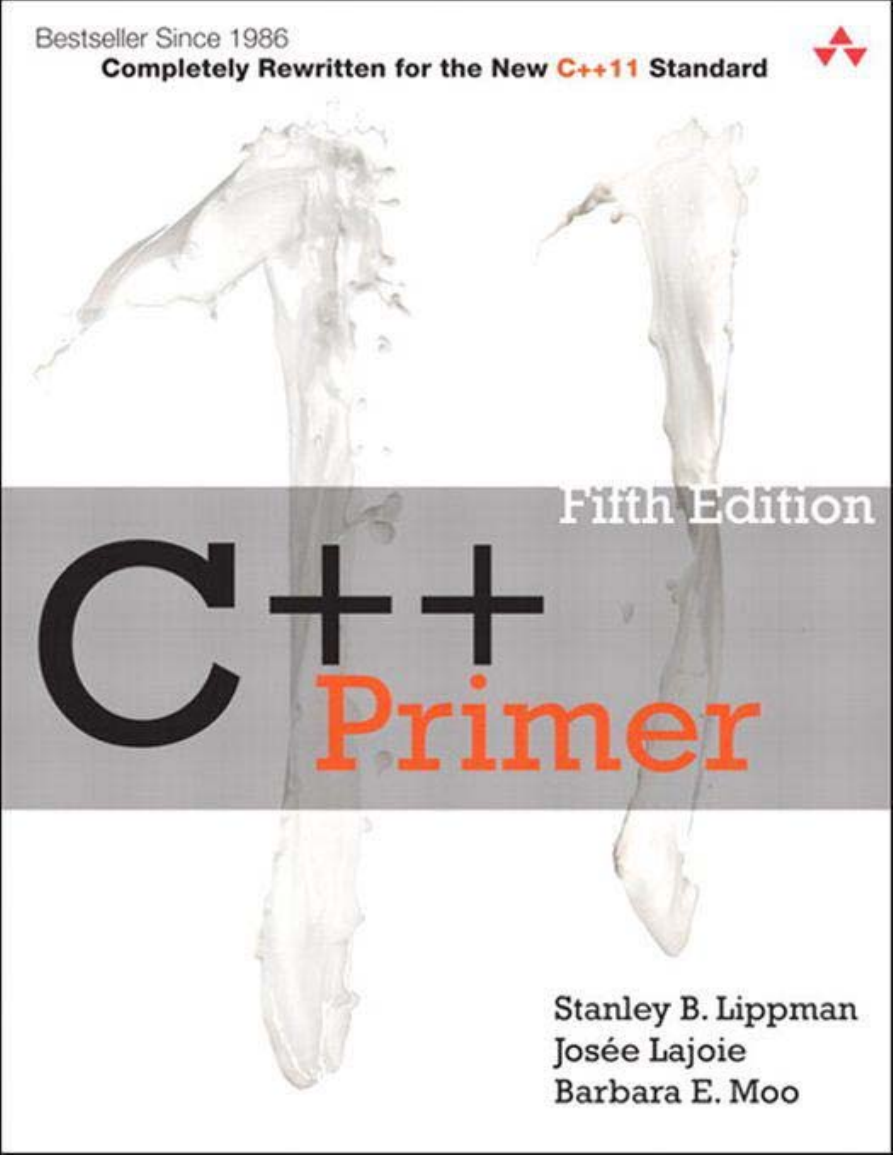
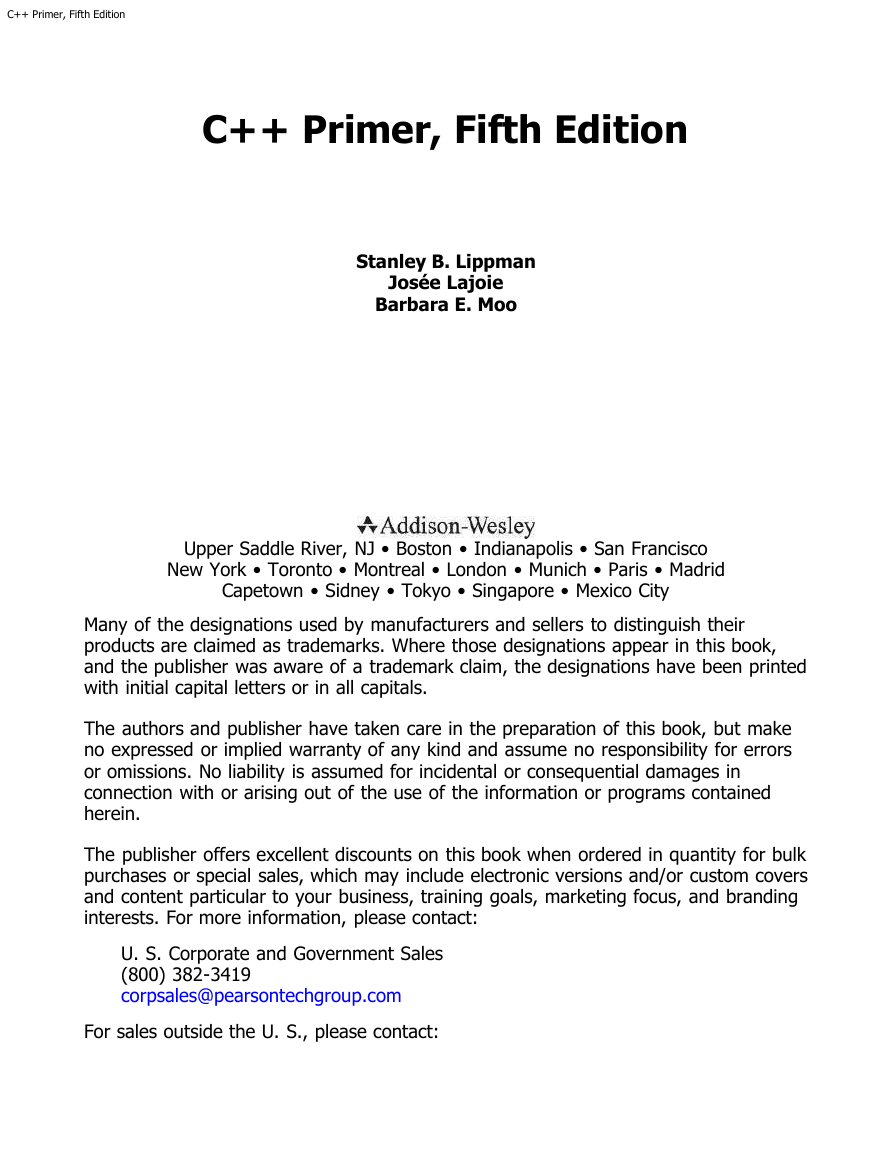
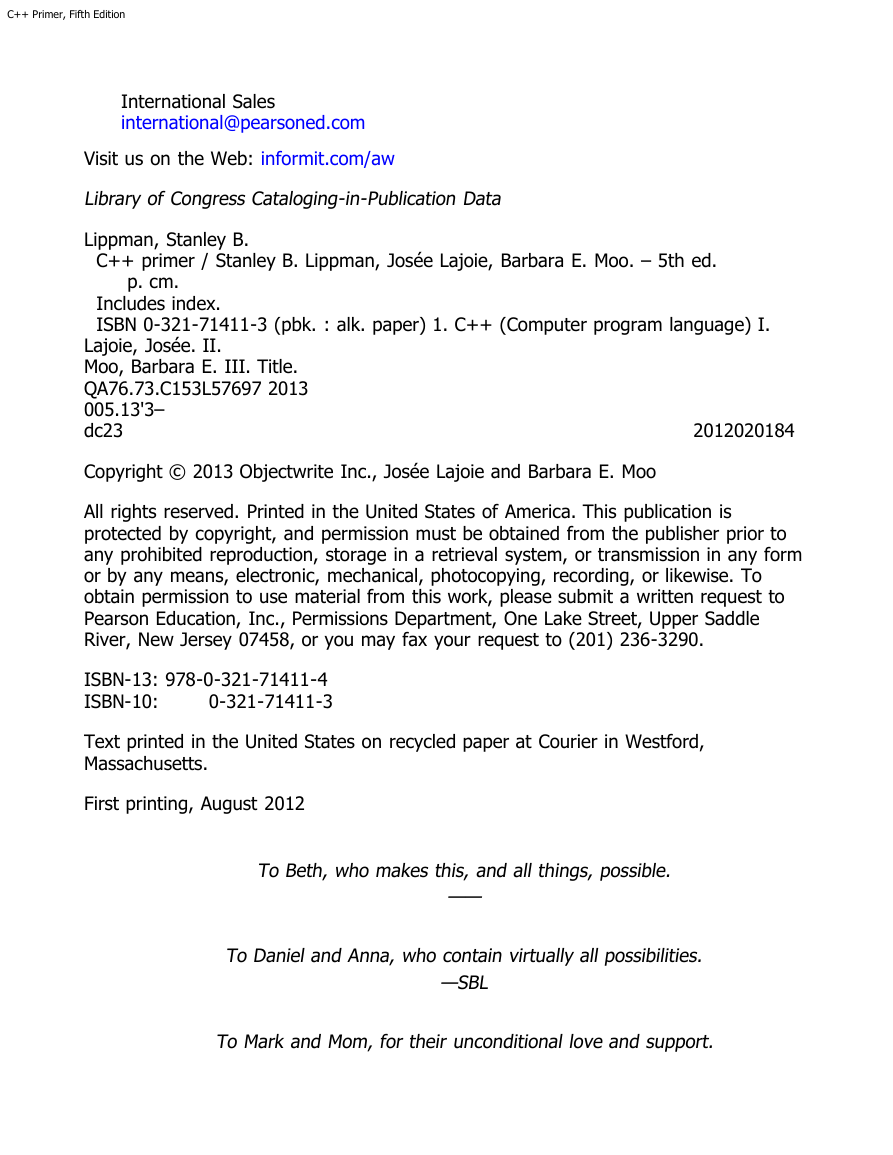
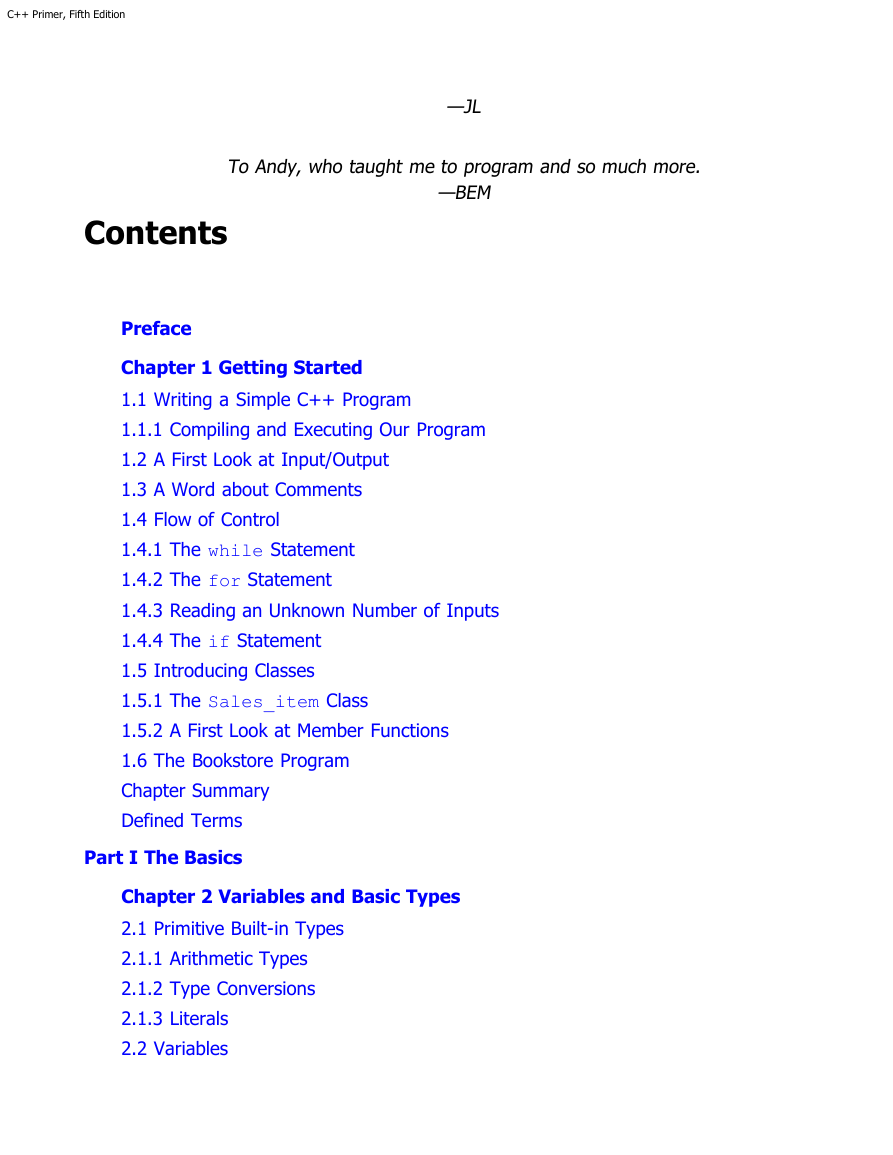
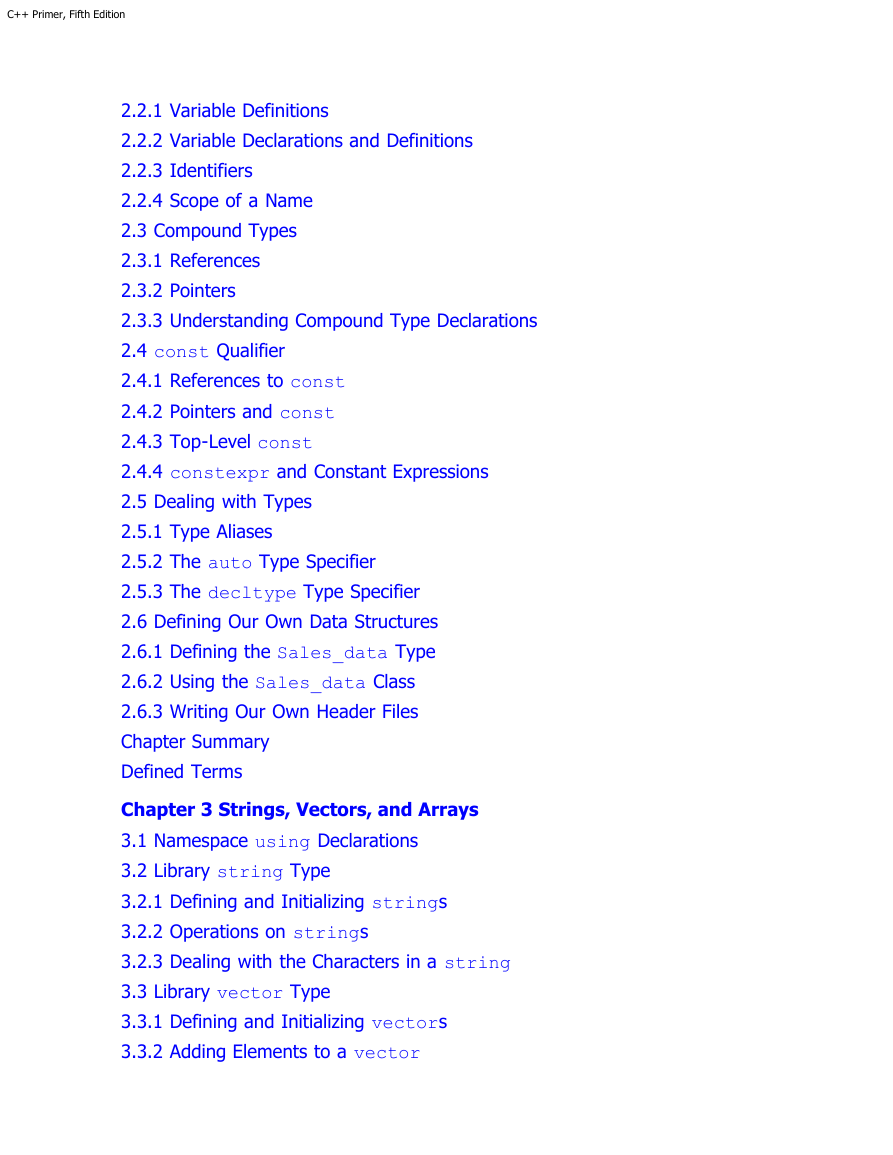
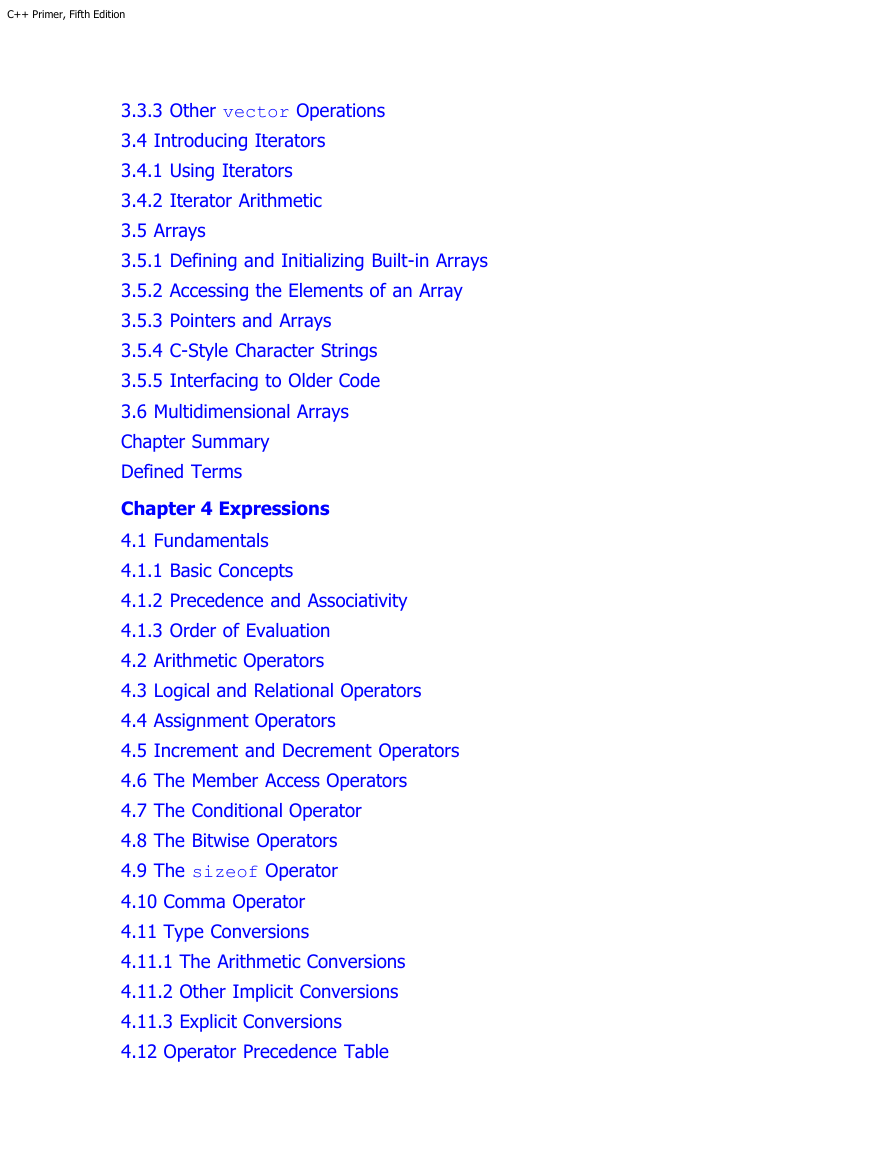
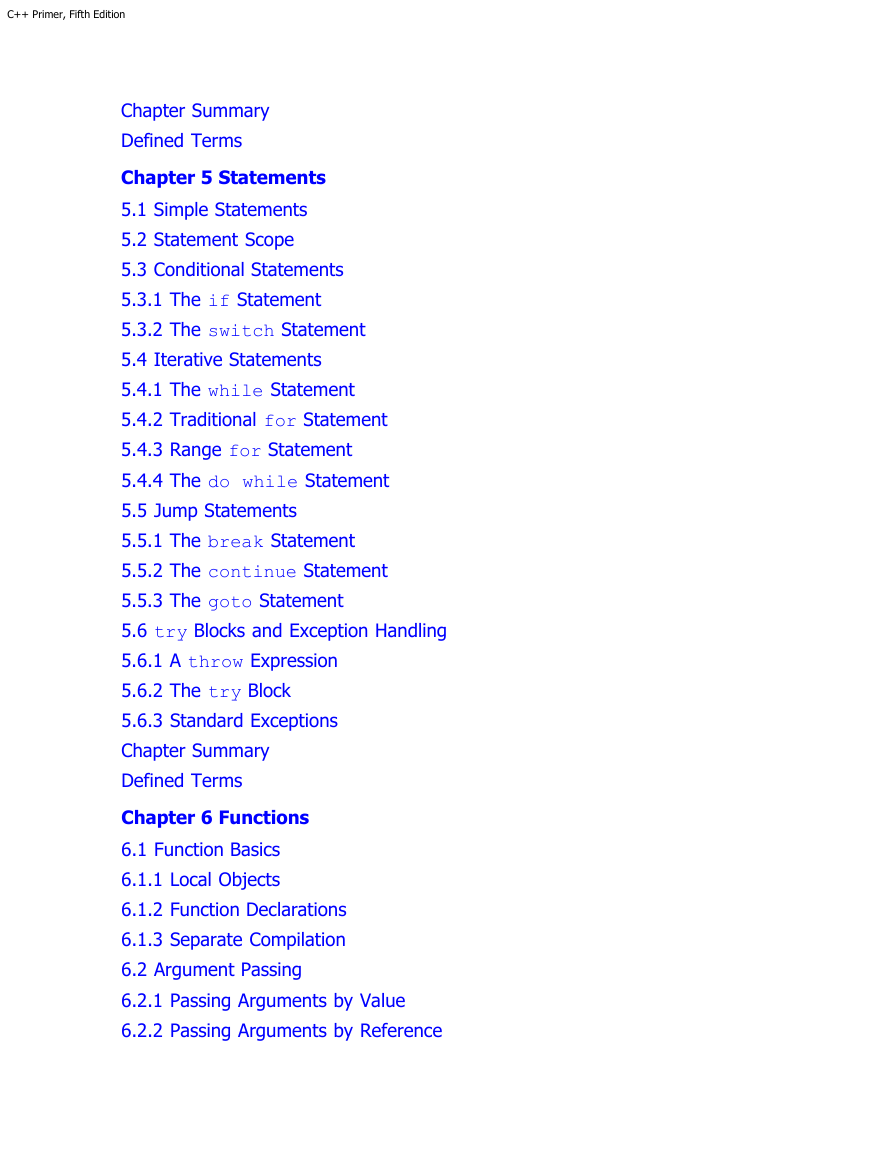









 2023年江西萍乡中考道德与法治真题及答案.doc
2023年江西萍乡中考道德与法治真题及答案.doc 2012年重庆南川中考生物真题及答案.doc
2012年重庆南川中考生物真题及答案.doc 2013年江西师范大学地理学综合及文艺理论基础考研真题.doc
2013年江西师范大学地理学综合及文艺理论基础考研真题.doc 2020年四川甘孜小升初语文真题及答案I卷.doc
2020年四川甘孜小升初语文真题及答案I卷.doc 2020年注册岩土工程师专业基础考试真题及答案.doc
2020年注册岩土工程师专业基础考试真题及答案.doc 2023-2024学年福建省厦门市九年级上学期数学月考试题及答案.doc
2023-2024学年福建省厦门市九年级上学期数学月考试题及答案.doc 2021-2022学年辽宁省沈阳市大东区九年级上学期语文期末试题及答案.doc
2021-2022学年辽宁省沈阳市大东区九年级上学期语文期末试题及答案.doc 2022-2023学年北京东城区初三第一学期物理期末试卷及答案.doc
2022-2023学年北京东城区初三第一学期物理期末试卷及答案.doc 2018上半年江西教师资格初中地理学科知识与教学能力真题及答案.doc
2018上半年江西教师资格初中地理学科知识与教学能力真题及答案.doc 2012年河北国家公务员申论考试真题及答案-省级.doc
2012年河北国家公务员申论考试真题及答案-省级.doc 2020-2021学年江苏省扬州市江都区邵樊片九年级上学期数学第一次质量检测试题及答案.doc
2020-2021学年江苏省扬州市江都区邵樊片九年级上学期数学第一次质量检测试题及答案.doc 2022下半年黑龙江教师资格证中学综合素质真题及答案.doc
2022下半年黑龙江教师资格证中学综合素质真题及答案.doc